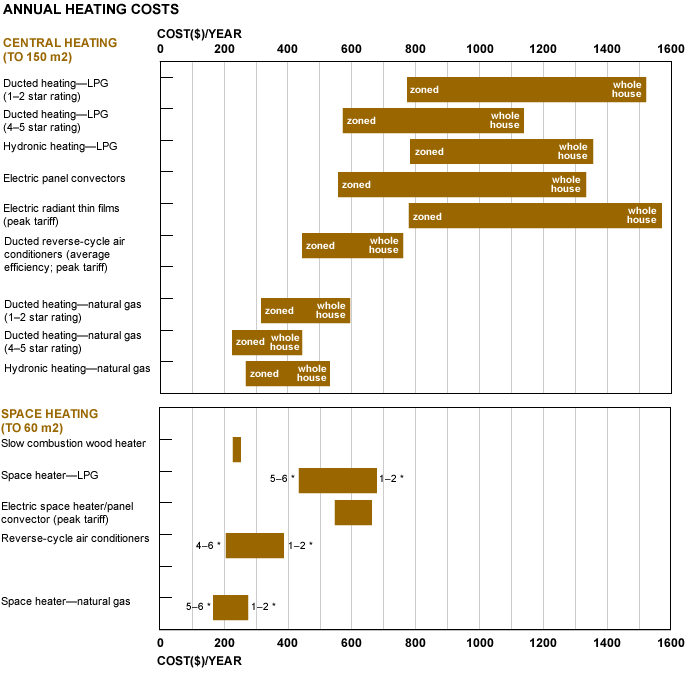
Naturally, we all want the best heater that's available to us - but what we normally end up with is the best heater that we can afford. When you consider the cost of a heater, it's very important that you don't focus solely on the price tag of the heater itself. The high ongoing fuel and occasional maintenance costs of some types of heaters can easily tip the balance, even in the short term.
Initial investment
The cost of your heater is obviously going to be a key factor when it comes time to buying one. It isn’t always as black and white as buying the heater and taking it home, though. In addition to the basic cost of the unit, different types of heaters have different installation requirements, which can add fairly significantly to the cost to get the heater up and running.
Gas heaters, for example, are almost always more expensive than electric heaters, and most of them require the expert installation of a flue by a qualified technician. If you plan on using the heater regularly or heating an entire house with it, the added cost will eventually be justified. The main things to consider when you weigh up the different initial costs are how long you plan to have the unit for, how often you intend to use it, and how much of the house you expect to heat with it. In many cases, choosing the cheapest option only gives you heating for part of your home, and will have you going back for a more capable heater sooner or later.
Cost of fuel
Some fuel supplies are more abundant than others, which usually affects how much you will have to spend to keep your heater in action. Gas, for example, is widely available in most metropolitan areas and is incredibly cheap when compared to other fuel types. Firewood and organic pellets are also in abundance and cheap to use. Heat from the sun is free of course, and solar options (particularly the installation of photovoltaic cells) may even end up helping to pay for the system.
On the other hand is electricity. While widely available and very convenient, electricity is expensive to use for more serious heating applications, and the cost is expected to continue to rise. That's not to say electric heating is the wrong choice for all applications though - just that where viable alternatives exist for larger heating jobs, they may be cheaper in the long run.
Before settling on a heating system and fuel type, find out what types of fuel are available in your area and what they're likely to cost.
 Source:
Source: 




